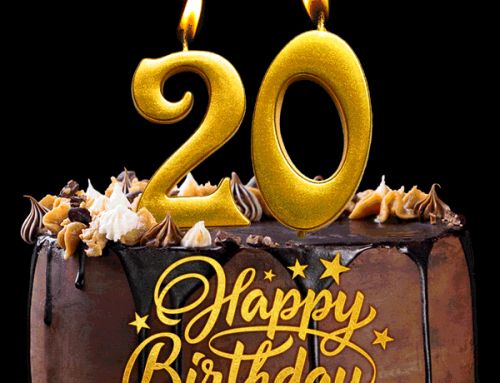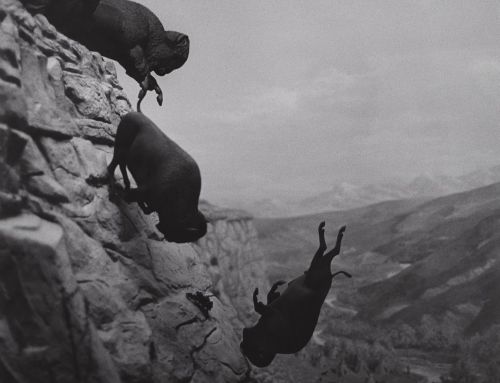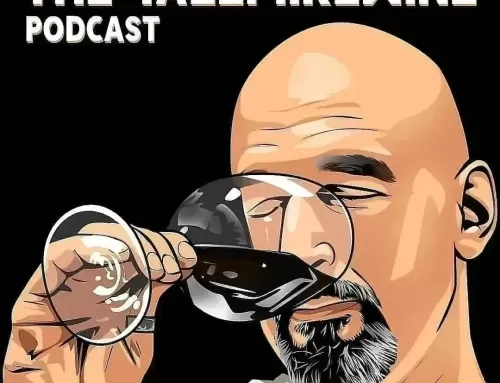
When thinking about both of these initiatives, here are some additional issues to consider:
1. Do you think the state should or should not have a monopoly on selling hard liquor?
Washington is in the minority in having a monopoly on sale of spirits. Eighteen other states have a monopoly on some aspect of the distribution and sale of liquor. Both Initiatives 1100 and 1005 would end this monopoly.
2. Do you or do you not want spirits to be sold in grocery stores and at convenience stores?
This will surely occur with the privatization of liquor sales proposed in both Initiatives 1100 and 1105.
3. Would you be interested/disinterested in seeing large discount liquor retailers open up in Washington?
Many have stated that these legal changes under 1100 and 1105 would incent certain large discount retailers to open up numerous stores in Washington State. This would obviously have an affect on consumers as well as large and small businesses.
4. How might these changes affect public health and safety issues related to access to alcohol?
There has been a good deal of advertising around this subject, particularly on potential effects on drunk driving, teenage drinking, and alcoholism rates. While these are serious issues, I have personally seen no data from the thirty-two other states that have private liquor sales to support these claims. This is not to say that it doesn’t exist. Please feel free to pass it along if you have seen it. Additionally, given that the funding for many of these claims comes from groups actively involved in the sale of liquor, I view much of this with some skepticism.
5. What happens if both initiatives pass?
These two initiatives have abundant contradictions in them. If they both pass, they will wind up in the state legislature and/or courts to resolve.
6. How would these bills affect Washington State’s tax structure?
From my reading, there are two principle sources of state revenue from liquor:
1) Liquor excise tax and
2) Liquor profits
The current rules, quoting from The Olympian, are as follows:
(Begin quote) Liquor excise tax revenues come from basic rates of a 15 percent sales tax on liquor buyers and 10 percent for restaurant licensees, plus surcharges. These revenues are shared 65% to the state, 28% to cities, and 7% to counties.
Liquor profits are revenues from permits, licenses, permits fees and liquor sales. All liquor is marked up 51.9 percent above the wholesale cost before it is sold. From those profits, the state first pays for Liquor Control Board activities, then divides the remaining profits – 50 percent to the state, 40 percent to cities and 10 percent to counties. (End quote)
That is the way that the law stands as of right now.
From my understanding, if Initiative 1100 were passed the state and local governments would still get liquor excise tax revenue. However, they would no longer receive liquor profits.
If 1105 were passed, the state and local governments would no longer receive liquor excise tax or liquor profits. However, the legislature could enact new laws to provide taxation. In fact, it is directed to do so by the initiative. That said, the legislature is under no obligation and other initiatives on the ballot may make it more difficult for the legislature to increase taxation.
Liquor sales and distribution would still be subject to local sales tax and the local Business and Occupation tax in the cities and towns that impose such a tax.
Washington’s Office of Financial Management estimates, using a range of assumptions, states that Initiative 1100 is revenue negative: $76 to $85 million at the state level and $180 to $192 million at the local level. Both of these estimates are over a five-year term. Both estimates are, of course, controversial.
The Office of Financial Management estimates that Initiative 1105 is revenue negative. State revenues are estimated to decrease by $486 to $520 million. Local revenues are estimated to decrease $205 to $210 million. Both of these estimates are considered over a five-year period.
This information is summarized in the table below.
| Initiative 1100 | Initiative 1105 |
| Retains liquor excise tax | Eliminates liquor excise tax |
| Eliminates liquor profits (i.e. markup) | Eliminates liquor profits (i.e. markup). Recommends the legislature create new taxes |
| The Office of Financial Management estimates that Initiative 1100 is revenue negative at the state ($76 to $85 million) and local $180 to $192 million) levels. See the document links below for caveats and additional detail. | The Office of Financial Management estimates that Initiative 1105 is revenue negative at the state ($486 to $520 million) and local ($205 to $210 million) level. See the document links below for caveats and additional detail. |
See a review of the fiscal impact of 1100 by the Washington State Office of Financial Management here (Note: Opens .pdf). See a review of the fiscal impact of 1105 here.
* * *
Well, here we are at the end of this series.
The question to ask yourself at this point is, do you feel like you have enough information about what is proposed and the fiscal ramifications to make an informed decision about Initiatives 1100 and 1105? If you not, what additional information do you need and how will you seek it out? If you don’t get this information, how will you vote?
As written previously, I plan in a subsequent post to give the perspective of people at all three of the distribution tiers. If you are a winery, distributor, or retailer and are interested in sharing your thoughts, please contact me at [email protected]. This will involve responding by phone or email to a specific set of questions. The responses may be anonymous or attributed, whichever you prefer.
Separately, I plan on collating and listing the names of wineries that have taken positions for or against these initiatives and listing this information on the blog for reference. If you are interested in having your winery’s name and position on these initiatives listed on this blog, please contact me at the email address above and state your positions on both 1100 and 1105 (no additional explanation needed).
I look forward to continuing to hear your thoughts and concerns about both initiatives. Make sure to participate in the poll on the right about initiatives 1100 and 1105.
Required Reading:
Initiative 1100 Senate Summary
Initiative 1105 Senate Summary
Initiative 1105 House Summary
Association of Washington Cities document
Washington State Office of Financial Management assessment of 1100
Washington State Office of Financial Management assessment of 1105
Municipal Research and Services Center of Washington site (excellent links to other sources)
Other Items of Interest
Wine Spectator article
Tacoma News Tribune article
The Olympian article
Seattle Metropolitan magazine series
The Wine Economist (series of excellent recent posts)







Sean, you have done a monumental job of collating all that information about both initiatives. You are to be commended.
Last Sunday, we were at a dinner where one of the guests asked me about I-1100 and I- 1105. I explained the differences between the two (your articles were most helpful in this regard). He asked me what happens if both initiatives pass. I told him it would be up to the legislature and courts to decide. He was basically in favor of taking the state out of the liquor business but was concerned about what might happen. I recommended voting yes on 1100 and no on 1105.
Sean, with the information you have gathered, I think the case for initiative 1100 becomes even more compelling. Sure, it benefits big businesses like Costco more than the little guys. But the consumer will benefit from more, not less competition. The anti-1100 campaign is being driven by the beer industry that wants to maintain the anti-competition status quo. The "Protect our Communities" is just a smoke screen for that.
Sure some small wineries are worried about the possible impact on their businesses. Taking the state out of the liquor business in this way is going into uncharted waters, something no other state has done to this extent. But I think the small wineries has less reason to be fearful than some are. There will be more tools for creative marketing as well, without the rigid restraint of the three-tier system.
I hope you, too, will end up supporting 1100 even though it leaves much to be desired. Your poll shows 70% of your readers favor 1100. I think you should be in agreement as well.
Mr. Sullivan,
I echo the commendations for an outstanding series and thorough review of the initiatives. As with most initiatives (or legislative bills, for that matters), none of the solutions are perfect.
I'm no fan of cutting off state funding, and believe that most taxes are reasonable and support state services. But I-1105 clearly goes too far over the line in eliminating the excise tax on liquor sales entirely. However, I have always taken issue with the state-sanctioned monopoly on liquor sales in this state. My friends and I often refer to the current system of state-run stores as "Christine Gregoire's House of Spirits", just as they were "Gary Locke's House of Spirits" previously (and could just as easily have become "Dino Rossi's Liquor Emporium" had the last gubernatorial elections turned out differently). The Liquor Control Board should be in the business of regulating and enforcing liquor laws, not selling it.
The dismantling of the state liquor monopoly far outweighs the downside of decreased state revenues in my mind. It is for this reason that I intend to go against my long-standing policy of voting "No" on nearly every state initiative, and instead vote FOR I-1100. I fully expect that the legislature will modestly increase taxes on liquor sales as necessary to supplement lost income, though hopefully not to the detriment of the already reasonable taxes in place on beer and wine sales.